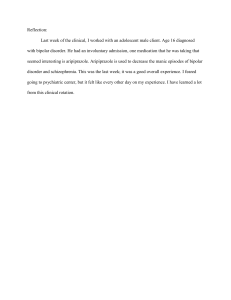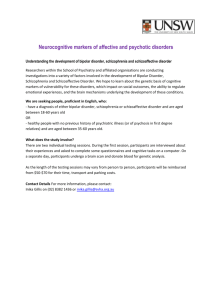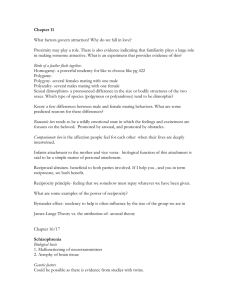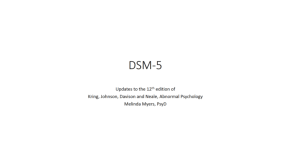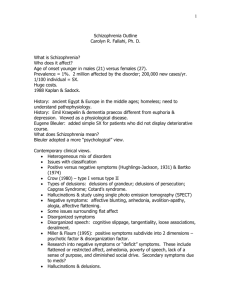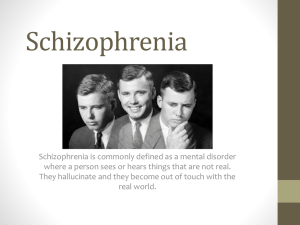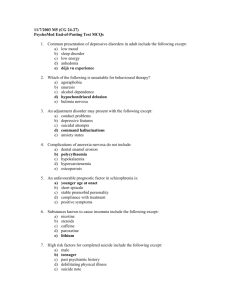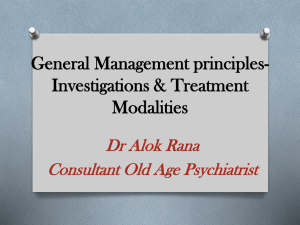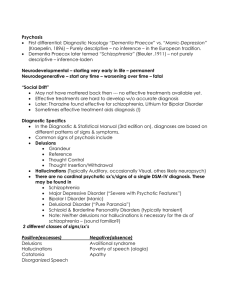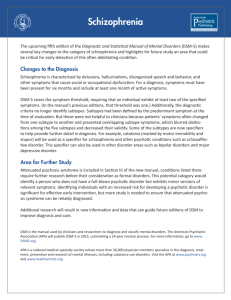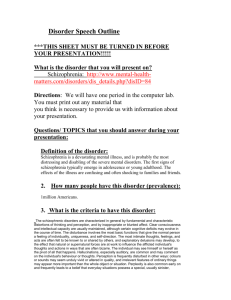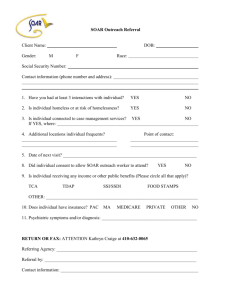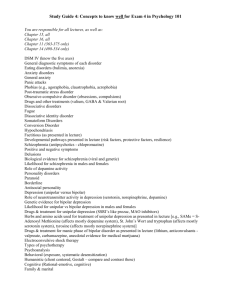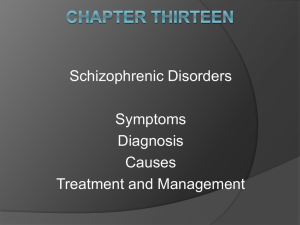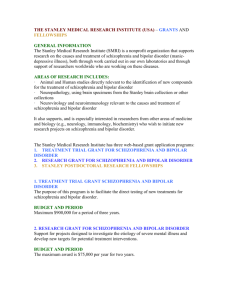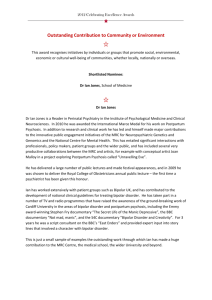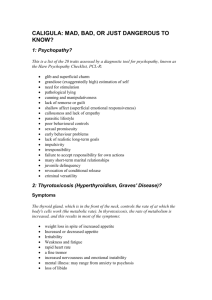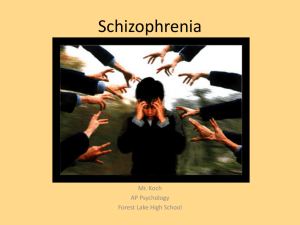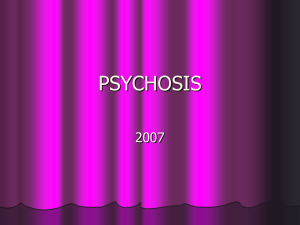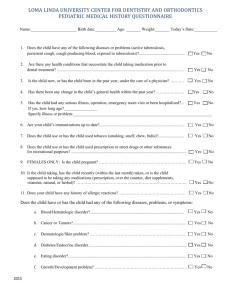What is psychosis? D B Double
advertisement
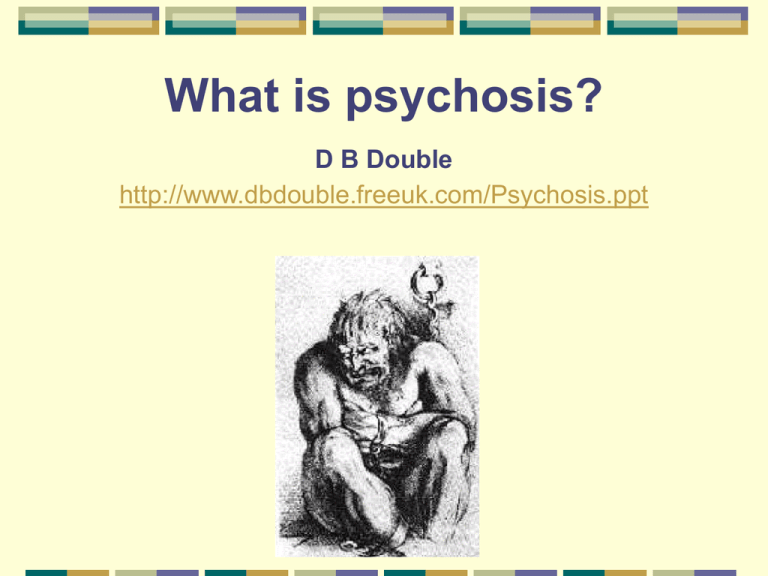
What is psychosis? D B Double http://www.dbdouble.freeuk.com/Psychosis.ppt Symptoms Hallucinations Delusions Thought disorder 'Loss of contact with reality' Disorders Schizophrenia Manic-depression (Bipolar disorder) Paranoid disorder (Delusional disorder) Psychotic depression Classificatory criteria International classification of diseases (ICD) Diagnostic and statistical manual (DSM) of American Psychiatric Association Distinction between schizophrenia and manic-depression (bipolar disorder) Organic versus functional disorders Epidemiology Most common risk period of first-episode psychosis is ages 14 to 35 Lifetime risk schizophrenia 1 in 100, and similarly for bipolar disorder Greatest risk of diagnosis of schizophrenia in socially deprived, especially young men 10-15% of population experience hallucinations at some point in their life Outcome Less than a quarter remain permanently affected Third complete recovery Better outcome generally in developing countries than industrialised nations Sudden onset better outcome than gradual Management Understanding in context Management of disturbance may require Mental Health Act Psychosocial interventions, support and facilitation of recovery Specific psychological treatments and family interventions Rehabilitation Medication Traditional and atypical anti-psychotic drugs Acute and preventative treatment Mood-stabilising medication (Antidepressants and minor tranquillisers) Side effects and discontinuation problems What is mental illness? Conclusion - ? Brain disorder (such as chemical imbalance) Research not led to clear conclusions All experience and behaviour involves neurochemical changes and this is true for 'normal' as well as psychotic experience Further reading Recent Advances in Understanding Mental Illness and Psychotic Experiences. British Psychological Society report (link) Critical psychiatry website (http://www.anti-psychiatry.co.uk/)
